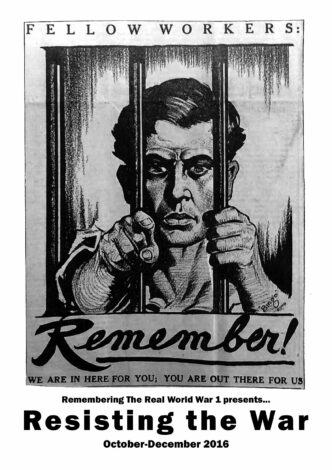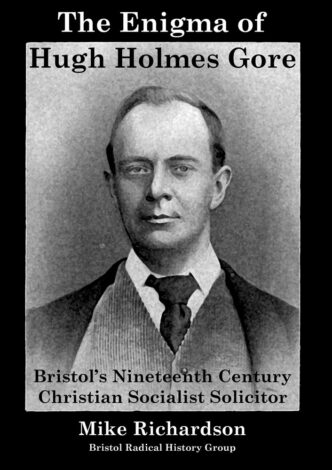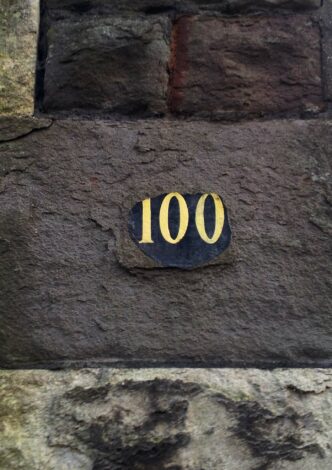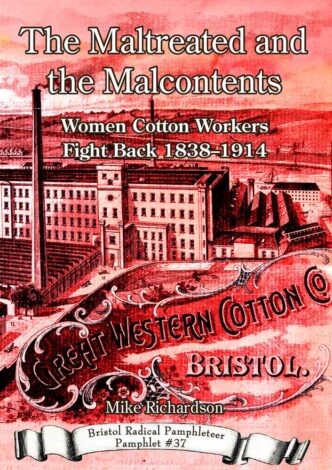Dings Park, Oxford St, Bristol BS2 0QU. A commemoration and wreath-laying to remember Arthur and Alfred Jefferies, both of whom were born in St Philips and lived in the Dings. Both fell as victims of the Battle of the Somme in 1916. Arthur was killed in action in Geuedecourt on September 16th 1916. Alfred was shot at dawn for desertion on November 1st 1916. A leaflet will be handed out at the event : Among the hundreds of thousands of men killed on both sides during the battle of The […]
The premier of Slaughter No Remedy a short film that studies the life of Walter Ayles a leading member of the Independent Labour Party in Bristol who was jailed in 1916 for his refusal to fight in World War One. This is followed by Watford’s Quiet Heroes a documentary telling the dramatic and largely forgotten stories of WW1 war resisters. Finally, The Unseen March exposes the contemporary policies that are increasing military involvement in schools across Britain. From the expansion of cadet […]
'Canting humbugs' was the way some in Bristol characterised opponents of the 'Great War'. But it is now clear that men like local councillor Walter Ayles, prepared to go to prison for their beliefs, had considerable local support. A talk with video extracts. Venue: Kingfisher Cafe, 99 Burley Grove Fishponds BS16 2LE.
Meet at Bristol Temple Meads station forecourt. Well over 50 people turned up when we put on this walk in July. It was so popular we’re doing it again. So if you enjoyed it so much last time you want to do it again, or you’ve been kicking yourself because you missed it, come along on 2nd October. The walk takes about two hours. It’s mainly on the flat with one short incline. It will finish at Hydra Bookshop in Old Market where tea & coffee will be available as well as several books/pamphlets […]
The Enigma of Hugh Holmes Gore: Bristol’s Nineteenth Century Christian Socialist Solicitor. By Mike Richardson. This is the second book published by BRHG. Find out more... Please circulate this flyer.
The Anglo – Catholic convert to the left, Hugh Holmes Gore, was a key figure in Bristol’s labour movement during the last two decades of the nineteenth century. Gore linked Clifton Christian Socialists, morally concerned about the poverty and suffering caused by economic depression, with the working class revolutionaries in the Bristol Socialist Society. His eloquence as a speaker moved dockers and miners and attracted working class votes in local elections. He was popular as the ‘people’s […]
According to historians of the slave-trade in Bristol there were 'precious few' Abolitionists in the city - but at least there were some and not just in the 18th and 19th Centuries. The last Anglo-Saxon Bishop, St Wulfstan, managed to get the 400 year-old trade of slaves between Bristol and Dublin banned in the 11th Century. Still obscured, the only 'good' story you can get from slavery is the banning of it. Bristol Radical History Group member Mark Steeds will try to shed some light upon the […]
 Not A BRHG Event
Not A BRHG Event
At Waterstones, use Union Street Entrance. Sheila Rowbotham recounts the interweaving lives of four women and two men – Helena Born, Miriam Daniell, Gertrude Dix, Robert Nicol, and William Bailie – as they migrate to America from Bristol, Edinburgh and Manchester. Radicalised by the rise of socialism, they cross the Atlantic dreaming of liberty and equality. Their lives open fascinating slants on both political and cultural movements and upon influential individuals like Walt Whitman, Eleanor […]
Where am I? You are on the site of Eastville Workhouse, which opened its doors in 1847. In the 1930s it became an old people's home and was finally demolished in 1972. This page is about the three memorials which are part of the Eastville Workhouse Project. Eastville Workhouse Plaque The plaque is situated on what is now the pedestrian entrance to East Trees Health Centre. This was the entrance to the driveway that led up to the main workhouse buildings. The new medical center was opened in […]
The history of Bristol’s Great Western Cotton Works in Barton Hill, which opened in 1838, is little known. The story of its workforce — mainly low-paid women and children — has never been told. From the 1830s to the early twentieth century, Barton Hill workers endured long working hours, high rates of industrial accidents and ill-health from the cotton dust and humidity. Moreover, they were subjected to wage cuts and fines by a series of unrelenting managers. Divided along age and gender lines […]





